Teaching hotels bridging theory and
practice
25 JULY 2019 7:22 AM
As most hospitality programs are industry focused, teaching hotels can play an important role in better preparing students
for the hotel industry.
In an industry with more than 50,000 hotels and 5 million hotel rooms, students upon graduation have the opportunity to work in a variety of hotels. These
range from 5,000-room convention hotels to small select-service properties, resort properties to urban hotels, branded versus independent boutiques.
While the size, shape, structure and personality of these hotels continue to evolve, certain fundamentals of hotel operations are similar. This point was
beautifully illustrated in the 1980s movie “Hoosiers,” in a scene in which coach Norman Dale (played by Gene Hackman) takes his small school team to the
state finals, where they are overawed by the massive gym. The coach asks a couple of players to measure the length, breadth and height of the court,
demonstrating it to be exactly the same size as their school gym.
Teaching hotels play a similar role in preparing hospitality students in the fundamental principles of hotel operations before they go out and experience the
real-world hotel “gym.”
Hospitality education evolution
Long considered to be the home of hospitality, Switzerland also has the distinction of starting the oldest hotel education program. École hôtelière de Lausanne,
was founded in 1893 by the Society of Hoteliers in Geneva to support the growing tourism industry in Switzerland. This school and many others in Europe that
followed in Austria, Germany and France, focused heavily on hotel operations, some housed in or adjacent to hotel buildings, and developed a very practical
curriculum designed to support the industry.
In 1922, a similar model was brought to the United States with the founding of Cornell’s School of Hotel Administration, once again endorsing practical
hospitality education. With the funding of Ellsworth M. Statler (founder of Statler Hotels), the program was able to develop the first teaching hotel on campus
in 1948.
Another early pioneer of industry specific Hospitality Business Education was Michigan State University’s School of Hospitality Business, founded in 1927
when the Education Committee of the Michigan Hotel Association met to discuss development of a college-level hotel management school. In 1947, the W.K.
Kellogg Foundation granted $1.4 million for construction of the Kellogg Hotel and Conference Center. In the 1960s, the Eppley Foundation granted the
university $1.5 million to build the Eugene C. Eppley Center for Graduate Studies in Hotel, Restaurant and Institutional Management.
The early hospitality education programs were narrowly focused on hotels; however, the industry was evolving with a growing emphasis on business and
hospitality programs at research-intensive universities focused on a broader mission of teaching and service. As the faculty cadre became more focused on
academic research (with required Ph.Ds), a disconnect started to develop between the needs of the industry for trained managers and needs of the academy
for journal publications.
Leading hospitality programs adapted to require internships, and industry advisory boards and schools such as the University of Houston, UNLV, University
of Delaware, Metropolitan State University, University of Denver, Purdue University, Penn State University, Michigan State University, Hong Kong
Polytechnic and Chinese University developed teaching hotels or culinary/restaurant labs to provide practical experiential learning opportunities for students.
Current teaching hotel models and integration with hospitality programs
There are primarily three operating models of teaching hotels and hospitality programs.
One model adheres to the idea that the teaching hotel/hospitality school lab facilities should be owned by the university and operated by the hospitality school.
This model is administratively labor-intensive and requires an operational manager interface to oversee the business operations. However, it does provide
more control over the curriculum and potential for revenue capture.
The second model has a contractual relationship with a third party to either own or operate the hotel. This model will require a good working relationship with
the operating partner to ensure the appropriate experiential learning for the students enrolled in the program. Administratively, this model will require less
operational oversight.
A third model may have a hospitality school building with some lab facilities, such as a teaching kitchen, restaurant, beverage lab, banquet facility adjacent or
attached to a teaching hotel. In this model, the school building would be operated by the hospitality program and the hotel operated by a third party.
Opinions
By A.J. Singh
Copyright © 2008-2019 STR, Inc. Page 1 / 2
more control over the curriculum and potential for revenue capture.
The second model has a contractual relationship with a third party to either own or operate the hotel. This model will require a good working relationship with
the operating partner to ensure the appropriate experiential learning for the students enrolled in the program. Administratively, this model will require less
operational oversight.
A third model may have a hospitality school building with some lab facilities, such as a teaching kitchen, restaurant, beverage lab, banquet facility adjacent or
attached to a teaching hotel. In this model, the school building would be operated by the hospitality program and the hotel operated by a third party.
Benefits of integrating teaching hotels and hospitality programs
The extent to which programs have integrated teaching hotels in the hospitality program will vary. However, they have some or all the following elements:
Hotel internship: While students have the option to work in a variety of hospitality sectors for a required internship, the teaching hotel becomes an excellent
option for those students who are interested in hotel management. With a well-designed internship program, students can be rotated through various
departments for both line-level and supervisory positions. If jointly created, this ensures a great learning experience for the student and a potential pipeline for
a management company if they manage the hotel.
Embedded operational and observation exposure: Working closely with hotel operational managers, instructors can include non-intrusive operational and
observational exposure for students enrolled in various core classes such as lodging, facilities management, food and beverage, and also support functions
such as marketing, accounting and human resources.
Classroom enrichment: Most hospitality classes are taught by research faculty with a supporting textbook. Programs affiliated with a teaching hotel can
enrich the classroom experience in multiple ways: team teach with operating managers, guest speakers to supplement sessions, live cases and hiring faculty
with operations experience. Affiliation with a teaching hotel allows a lot of room for pedagogical creativity to simulate a real environment.
Showcase for community outreach and continuing professional education: If structured correctly, the teaching hotel and hospitality program could
become an excellent resource for the community for ongoing professional development in the city or region. The facility could become a center for
educational programs, seminars, workshops, training, informational forums and other outreach endeavors to showcase the hospitality program in the
community.
Research: Depending on the teaching hotel model and relationship with the operator, the facility could be used for operational research to support faculty
need for data. If the research is structured with the idea of improving operational performance—such as service excellence, cost savings, customer
perceptions, employee satisfaction and other themes related to operational research—it could be a win-win effort.
Conclusion
While most hospitality programs may not have the luxury of developing a teaching hotel, the overwhelming consensus in the academy is that a well-rounded
hospitality school graduate is one who learns the fundamentals by integrating theory with practice. The old education adage attributed to Benjamin Frankin
holds true: “Tell me and I forget, teach me and I may remember, involve me and I learn.”
A.J. Singh (Ph.D., ISHC) is Founding Director of Hospitality and Tourism Management at the University of Texas Rio Grande Valley. Formerly he was Director of Hospitality Real Estate Investment
Management at Michigan State University.
The opinions expressed in this column do not necessarily reflect the opinions of Hotel News Now or its parent company, STR and its affiliated companies. Columnists published on this site are given
the freedom to express views that may be controversial, but our goal is to provoke thought and constructive discussion within our reader community. Please feel free to comment or contact an editor
with any questions or concerns.
Copyright © 2008-2019 STR, Inc. Page 2 / 2

